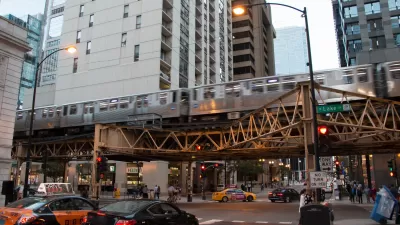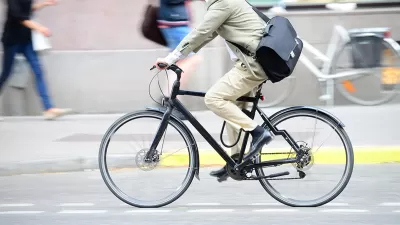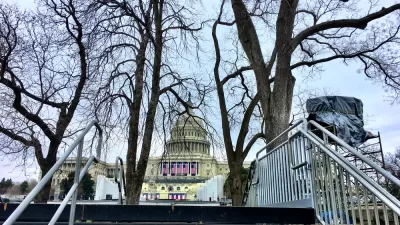The Build Back Better legislation could bring much-needed support to place-based economic development programs.

A brief from the Brookings Institution authored by Mark Muro, Robert Maxim, Anthony F. Pipa, Yang You, and Colleen Dougherty paints an optimistic picture for place-based programs, which could receive increased federal funding thanks to the Build Back Better Act.
Some of the pending place-oriented programs would boost the nation’s regional innovation capacity by investing hundreds of millions of dollars in regional tech hubs, manufacturing institutes, and regional industry clusters. Others would provide block grants so distressed labor markets can expand employment opportunities. And still others would channel multiyear investments into communities to help with energy and industrial transitions, community revitalization, and rural partnerships.
Although these programs haven't received much media attention, the authors note, the more than 30 place-based programs in the bill "represent a genuine breakthrough for the growing recognition that smart investments aimed at strengthening the economies of particular regions or localities can enhance overall welfare and prosperity."
This stands in contrast with prior policy that assumed market forces would eventually lessen the differences between places, even as the economic health of regions and individual towns and neighborhoods grew further apart. Now, research from Brookings and others is showing the potential of place-based economic development that considers local conditions and needs.
While place-based initiatives come with their own set of challenges, the proposed policies in the Build Back Better Act could provide a new framework for approaching economic development and reducing regional inequality.
As of December 15, the Build Back Better Act appears unlikely to be approved by the end of the year, though the White House put out a statement reaffirming support for the legislation from within the Democratic party's more obstinate elements.
FULL STORY: The House’s Build Back Better Act is a milestone for place-based solutions

Alabama: Trump Terminates Settlements for Black Communities Harmed By Raw Sewage
Trump deemed the landmark civil rights agreement “illegal DEI and environmental justice policy.”

Study: Maui’s Plan to Convert Vacation Rentals to Long-Term Housing Could Cause Nearly $1 Billion Economic Loss
The plan would reduce visitor accommodation by 25% resulting in 1,900 jobs lost.

Why Should We Subsidize Public Transportation?
Many public transit agencies face financial stress due to rising costs, declining fare revenue, and declining subsidies. Transit advocates must provide a strong business case for increasing public transit funding.

Paris Bike Boom Leads to Steep Drop in Air Pollution
The French city’s air quality has improved dramatically in the past 20 years, coinciding with a growth in cycling.

Why Housing Costs More to Build in California Than in Texas
Hard costs like labor and materials combined with ‘soft’ costs such as permitting make building in the San Francisco Bay Area almost three times as costly as in Texas cities.

San Diego County Sees a Rise in Urban Coyotes
San Diego County experiences a rise in urban coyotes, as sightings become prevalent throughout its urban neighbourhoods and surrounding areas.
Urban Design for Planners 1: Software Tools
This six-course series explores essential urban design concepts using open source software and equips planners with the tools they need to participate fully in the urban design process.
Planning for Universal Design
Learn the tools for implementing Universal Design in planning regulations.
Smith Gee Studio
Alamo Area Metropolitan Planning Organization
City of Santa Clarita
Institute for Housing and Urban Development Studies (IHS)
City of Grandview
Harvard GSD Executive Education
Toledo-Lucas County Plan Commissions
Salt Lake City
NYU Wagner Graduate School of Public Service





























